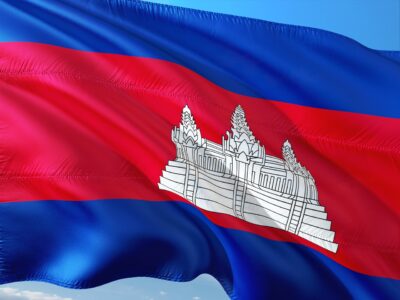02-12-2024
Stella Liantsi
South and East Asia Researcher,
Global Human Rights Defence.
The new president of Sri Lanka Anura Kumara Dissanayake has had to deal with growing human rights concerns that have been on the rise through the years.
The new president, who was elected on September 21st, and his National People’s Power coalition, which won a majority of parliamentary seats on November 14th, 2024, pledged very ambitious and transformative commitments. In his campaign, the current president promised to actively fight corruption, eliminate the Online Safety Act’s (an Act to combat harmful online content, regulate misuse of online accounts, identify harmful websites, and prevent support for illegal online activities, ensuring a safer digital environment in Sri Lanka) abusive provisions, create an independent Directorate of Public Prosecutions distinct from the attorney general’s office, repeal the Prevention of Terrorism Act and update economic policies to advance equity. His government is also ‘fighting’ to undo the mistakes of past administrations in addressing the grave human rights abuses that occurred during the 1983-2009 civil war between the government and the separatist Liberation Tigers of Tamil Eelam. Recently, however, the new president announced new investigations into the tragic 2019 Easter Sunday bombings and other grave crimes. On Easter Sunday, nine suicide bombers set off their bombs in six different locations around the nation, resulting in the death of 269 people according to a legislative commission, a number that rose to 359 the days following the strikes. The attacks were attributed to the organisation known as Islamic State (IS) when the footage was made available to the public of men claiming to be the bombers. The new president also promised to redress the serious human rights abuses that occurred during the civil conflict between the government and the separatist Liberation Tigers of Tamil Eelam, which raged from 1983 to 2009.
With regard to the economic aspect following Sri Lanka’s economic crisis during which millions of people suffered, The president promised to enact more equitable tax laws and expand government funding to protect the economic and social rights of Sri Lankans including social security, health care, and education and combat corruption. Speaking of corruption, previous governments have not addressed the issue of enforced disappearances which is a prominent problem in Sri Lanka. Instead of addressing the violations and stopping human rights abuses, they have pursued restrictive policies that protect those who commit violations and deny victims justice.
Sri Lanka’s new government has a critical opportunity to move past the shortcomings of the previous administration and steer Sri Lanka toward equality, justice, and human rights reform. President Anura Kumara Dissanayake is now able to fulfill his pledges to address long-standing issues, give priority to the repeal of oppressive laws, support impartial investigations into past crimes, and guarantee that journalists and human rights defenders can work without fear and harassment.
Sources and Further readings:
Sri Lanka: New President Should Reset Course on Rights. (2024, November 25). Human Rights Watch. https://www.hrw.org/news/2024/11/25/sri-lanka-new-president-should-reset-course-rights accessed on 9 December 2024







Comments